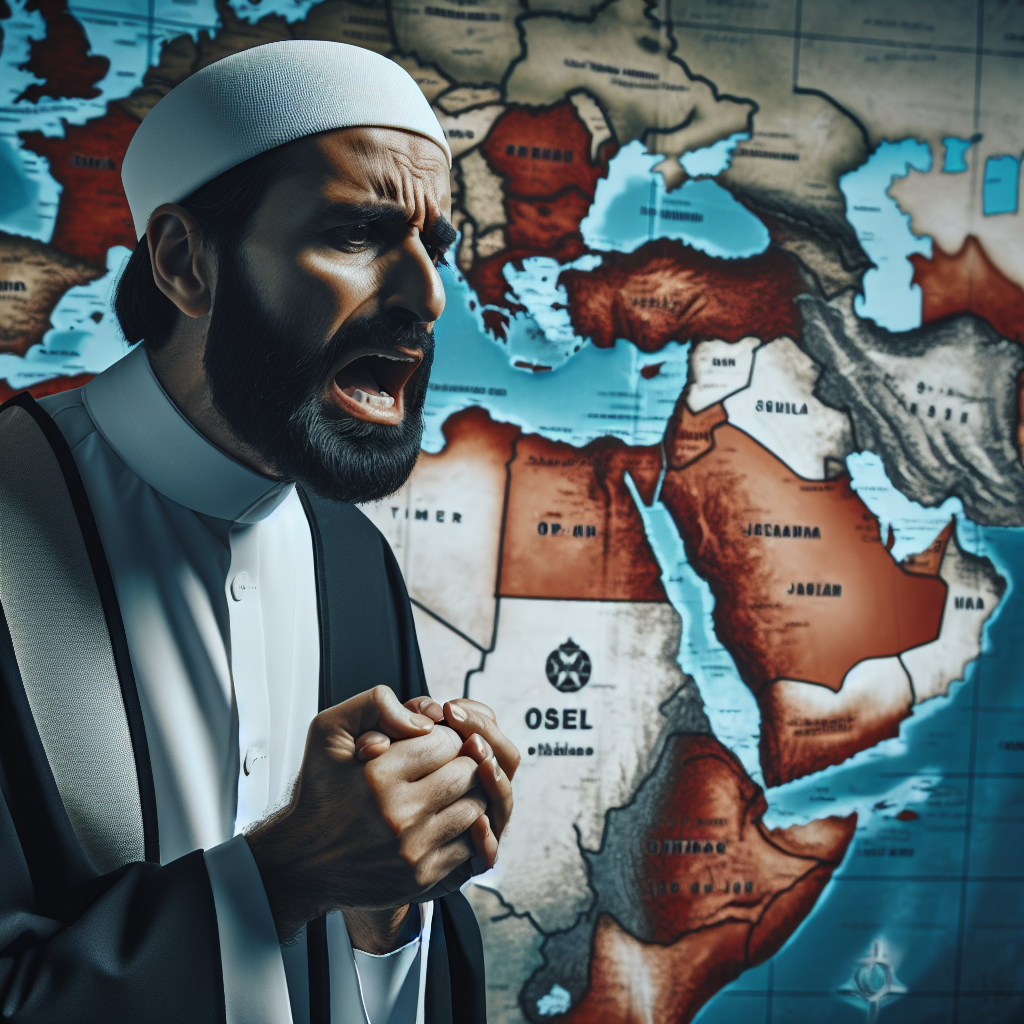A Call for Peace: Pope Francis Urges Immediate Ceasefire in Gaza
Introduction
The world is once again witnessing the harrowing effects of conflict, this time in the Gaza Strip, where escalating violence has claimed countless lives and displaced thousands. Amid this turmoil, Pope Francis has made a heartfelt plea for an immediate halt to Israeli airstrikes and renewed dialogue to secure peace and the release of hostages. This appeal, laden with compassion and urgency, embodies the Pope's unwavering commitment to global peace and reconciliation.
In this article, we explore the escalating crisis in Gaza, the Pope's call for intervention, and the global significance of his message.
Rising Violence in Gaza: An Unfolding Tragedy
The Origin of the Crisis
The Gaza Strip, one of the most contested regions in the world, has long been at the epicenter of conflict between Israeli military forces and Palestinian groups. Recent months have seen an alarming escalation, resulting in heavy bombings, civilian casualties, and destruction of vital infrastructure.
Thousands of innocent lives are caught in the crossfire, with entire families torn apart by the violence. Many are left homeless, with limited access to water, electricity, and medical care. As humanitarian distress deepens, global voices, including Pope Francis, have risen in solidarity with the affected populations.
The International Response
While some global leaders and organizations have called for restraint, others remain sharply divided over the decades-long conflict. Efforts by international bodies such as the United Nations to secure humanitarian aid corridors have faced resistance, underlining the complexities of the situation.
Pope Francis: A Voice of Moral Authority
Plea for Peace
Pope Francis, known for his relentless advocacy of peace, has once again used his position to champion dialogue and compassion. In a Vatican statement, the Pope called for an immediate halt to Israeli strikes and urged world leaders to prioritize negotiation over violence. His hope is to save lives and lay the groundwork for long-term coexistence.
The Pope emphasized the need to address the humanitarian crisis, advocate for the release of hostages, and pave the way for a permanent ceasefire. “Enough bloodshed, enough pain," he stated, reflecting the deep sorrow shared by millions worldwide.
The Significance of His Appeal
The Vatican, though a religious entity, wields significant soft power on the global stage. Pope Francis’s appeal carries weight not only because of his moral authority but also because of his history as a bridge-builder. His past efforts in mediating peace talks and advocating for minority rights reinforce his credibility as a peacemaker.
Global Implications: Why This Moment Matters
A Humanitarian Crisis at Hand
The unfolding crisis in Gaza is not just a regional conflict but a humanitarian catastrophe with global consequences. Refugees fleeing the area strain neighboring countries, while the collapse of medical facilities exacerbates the suffering for those left behind. Relief organizations are overwhelmed, struggling to deliver aid amidst worsening conditions.
The Path Forward
Pope Francis's call serves as a reminder that the path forward requires collective action. A sustainable resolution to the conflict depends on the willingness of all parties to engage in dialogue, find common ground, and prioritize the well-being of civilians over military goals.
The message also challenges the global community to rethink its role. Beyond condemnation and fleeting statements, concrete actions such as aid mobilization, diplomatic engagement, and grassroots peace initiatives need to take center stage.
Conclusion: Why We Must Act Now
The Pope’s plea for an end to Israeli strikes on Gaza is not merely a religious appeal—it is a human one. This conflict, like so many others around the world, is a stark reminder of how fragile peace can be and how devastating its absence is.
As we watch events unfold, each of us has a role in fostering understanding and compassion. Whether through raising awareness, supporting humanitarian relief efforts, or encouraging dialogue within our communities, we can contribute to peace in meaningful ways.
Make your voice heard. Share this message of peace and stand in solidarity with those affected. Together, we can hope for a brighter and more unified world.
Q&A
Q1: Why did Pope Francis call for an end to the strikes in Gaza?
A1: Pope Francis is deeply concerned about the humanitarian crisis and the loss of innocent lives. He aims to encourage immediate dialogue, the release of hostages, and a ceasefire to prevent further suffering.
Q2: How does the Vatican influence global politics?
A2: While the Vatican is a religious entity, it leverages its moral authority and soft power to influence global leaders and advocate for peace, humanitarian aid, and reconciliation.
Q3: What can individuals do to support peace efforts?
A3: Individuals can raise awareness, donate to humanitarian organizations, and encourage dialogue within their communities to promote understanding and compassion.
Q4: What are the key challenges to resolving the Gaza crisis?
A4: The conflict is rooted in decades of political, territorial, and cultural disputes. Challenges include trust deficits between parties, international polarization, and the ongoing humanitarian emergency.
Q5: How has the international community responded to this crisis?
A5: Responses have been mixed, with many calling for restraint and aid distribution. However, divisions among international powers have made unified action difficult.
Related Tags
#GazaConflict #PopeFrancis #HumanitarianCrisis #MiddleEastPeace #GlobalRelief #CeasefireNow #WorldNews
By amplifying Pope Francis’s message and understanding the depth of the Gaza crisis, individuals and nations alike can step up and work toward a peaceful resolution. Let us not wait for tomorrow when lives are being lost today.
